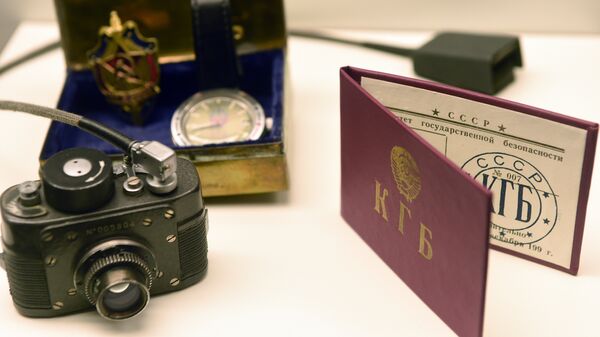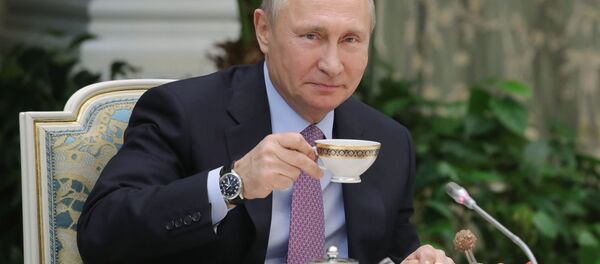On Tuesday, Bild magazine published an article with the sensational headline "Putin's Secret Stasi ID Card", saying that a newly discovered document, a salad-coloured Stasi ID card with a picture of a young Vladimir Putin plastered on the front, seemed to suggest that "the former KGB officer and current Kremlin chief…was, until the fall of the Wall, also an employee of the infamous Ministry for State Security!"
The card, a complete, non-edited, and superimposed version of which was not provided, was said to have been issued 31 December 1985 to one "Major Vladimir Putin", valid through the end of 1989, and includes a signature which doesn't match the Russian president's current signature. According to Bild, the document had been lost in the "boring classified files" of the "cadres and training" department of the former Stasi administration in Dresden, the East German city where Putin is known to have served during his time in the KGB.
Als KGB-Spion in Dresden — Putins geheimer Stasi-Ausweis entdeckt https://t.co/WukVOInnYU
— BILD (@BILD) 10 декабря 2018 г.
Felber stressed that the identity card "does not automatically mean that Putin worked for the Stasi."
Rather, the archivist noted, the document would have allowed him to go in and out of Stasi offices, could be used with police, and would have facilitated his work recruiting agents, since he wouldn't have to tell would-be recruits that he worked for the KGB.
"It is unclear why Putin left the ID card behind when he returned to Moscow in early 1990 instead of destroying it", Bild noted.
Presidential spokesman Dmitry Peskov commented on the Bild article on Tuesday, saying that if he had to make a guess, he would say that the document may have been issued to Putin as part of the partnership between the KGB and the Stasi at the time. Peskov suggested that questions on this issue should be addressed to the SVR, Russia's foreign intelligence service.
One Russian-speaking user questioned the authenticity of the alleged 'ID', pointing out that "the photo for documents should be the full face, whereas "Here it's a semi-profile view. And there is no seal on it. Looks like a fake."
Western media had a field day with the story, playing on the established lore about Putin's "mysterious past" in the KGB.
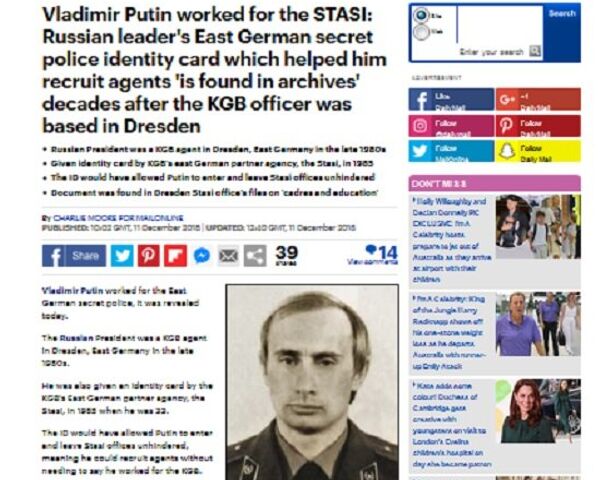
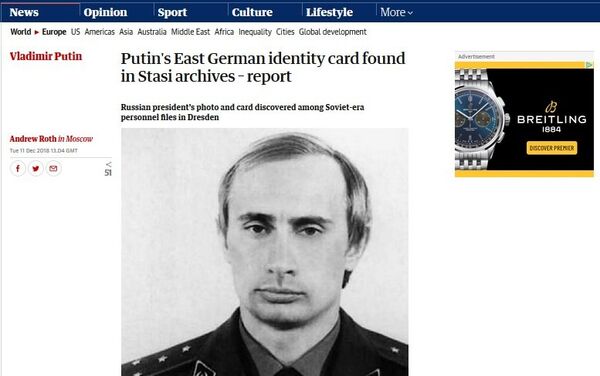
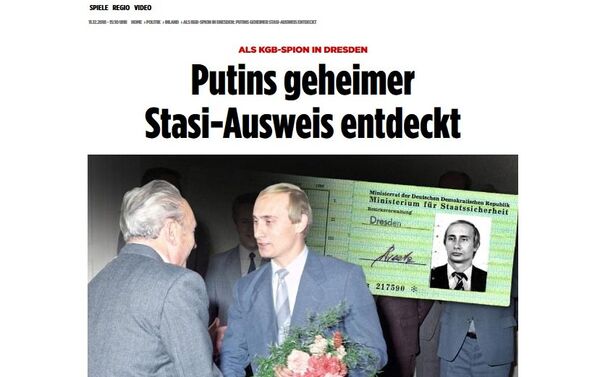
Putin's Time in East Germany
Previously published Stasi materials on Putin included generally mundane details, including the fact that he arrived in Dresden in August 1985, that his wife and daughter came to the country in the autumn of the same year, that they lived in an ordinary apartment on Radeberger Straße 101, and that the Putins' second daughter was born in Dresden in 1986. Putin was also said to have been a member of a local fishing club, to have driven a Lada Zhiguli sedan, and to have enjoyed Radeberger beer, a local brew, at Zum Thor, his favourite pub.
The Russian president never made a secret of his KGB past, and has repeatedly opened up about his work for the fearsome Soviet intelligence service in interviews and documentaries.

